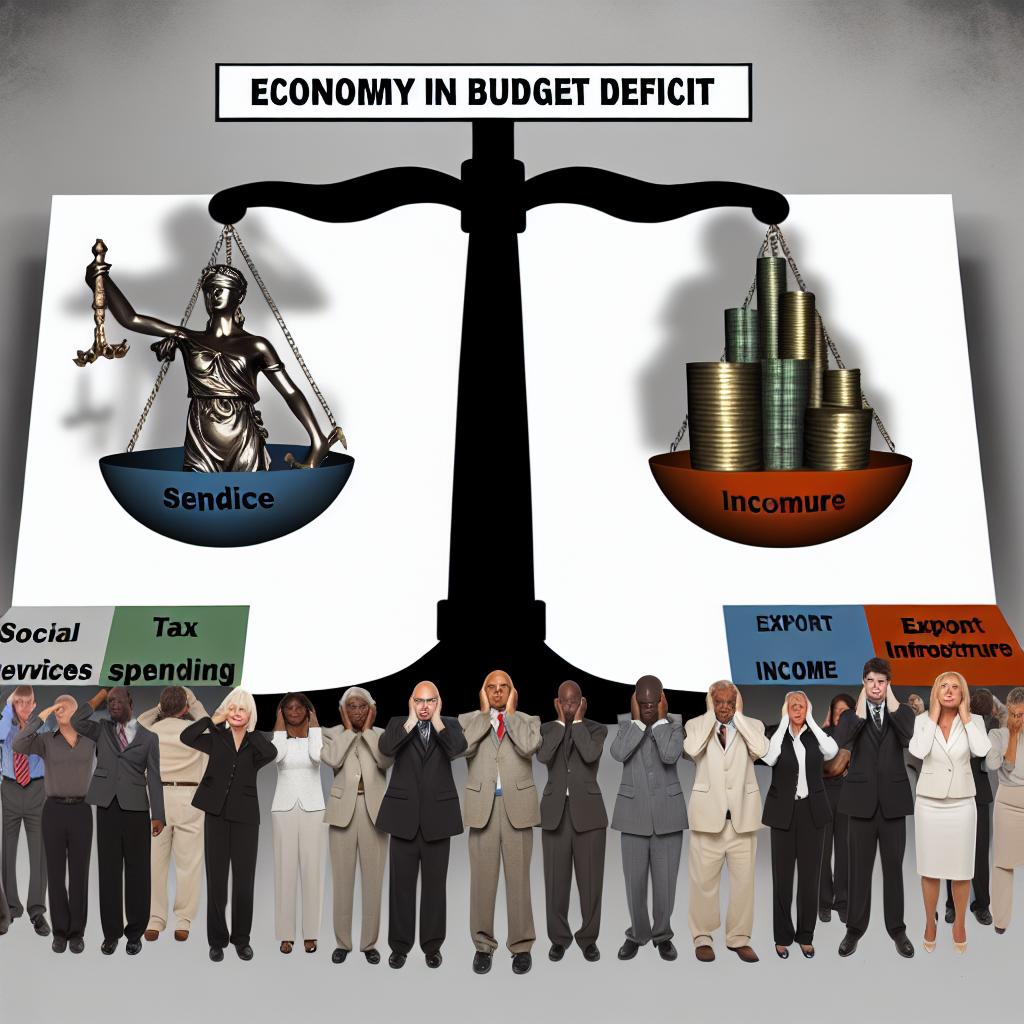What is a Budget Deficit and How Does It Affect the Economy?
- Written by: admin
- Category: Uncategorized
- Published: August 10, 2025

Understanding Budget Deficit
A budget deficit takes place when a government’s expenses surpass its revenue over a particular period. This phenomenon is relatively common among nations where spending priorities require more funding than the income generated. Governments generally finance these deficits by borrowing money, often through the issuance of bonds. Gaining a clear understanding of the impacts and implications of a budget deficit is essential for comprehending the broader scope of economic dynamics.
Causes of Budget Deficits
Several factors can contribute to the occurrence of a budget deficit. These factors range from increased government spending on essential programs to inefficiencies within the tax system. Below are some of the primary causes:
One of the most significant causes is increased government spending on key programs like healthcare, education, and defense. When these expenditures rise, often due to policy decisions prioritizing social welfare, the financial requirement may exceed available funds.
Another critical cause is a decrease in revenue from taxes. This can occur during economic downturns when businesses and individuals earn less, translating to lower tax collections. Tax cuts designed to stimulate economic growth may also reduce revenues if they are not offset by increased economic activity. Additionally, inefficient tax systems that fail to capture potential revenue can exacerbate this issue.
Occasionally, governments face unexpected financial crises necessitating emergency spending. Such emergencies can strain financial resources, leading governments to spend beyond their regular budget allocations.
Short-term Effects on the Economy
Despite the potential downsides, budget deficits can have certain short-term benefits for the economy, particularly in stimulating economic growth. When a government increases its spending, it injects additional liquidity into the economy.
Stimulating Economic Growth: By spending more than it collects, the government can invigorate money flow within the economy. When government funds are directed toward projects or services, they often lead to increased consumption of goods and services. This uptick in demand can push businesses to hire more workers and ramp up production, creating a ripple effect of economic activity.
The Keynesian economic theory suggests that during periods of economic recession, purposeful government deficits can help revitalize lukewarm economies. The increased expenditure from the government can induce consumer spending flows, stabilize the market, and reduce unemployment rates.
Long-term Consequences
Although budget deficits might act as a catalyst for short-term economic rejuvenation, their persistence can bring about negative long-term consequences. The implications of sustained deficits need careful management to mitigate potential risks.
Rising National Debt: The continuous funding of budget deficits through borrowing invariably increases a country’s national debt. As the debt accumulates, so does the interest obligation that must be repaid. Eventually, interest payments may consume a significant portion of government expenditures, reducing the available budget for other programs.
Additionally, there is a potential for inflation. As governments continue to borrow and introduce more money into circulation, there is a risk of inflation. Any scenario where there is an abundance of money chasing a limited supply of goods can result in an inflationary environment, diminishing the value of currency and causing price hikes.
Higher Interest Rates: Sustained borrowing can lead to increased interest rates as governments compete with the private sector for financial resources. This competition can make borrowing costlier for businesses and individuals, which might adversely impact private investment. A decline in investment can slow economic growth, creating a more challenging environment for long-term fiscal health.
Managing a Budget Deficit
Managing a budget deficit effectively demands a delicate balance between addressing immediate needs and preserving long-term fiscal health. Some common strategies to tackle these challenges involve a mix of increasing revenue and curbing unnecessary spending.
Tax reforms play a crucial role in boosting government revenue. By ensuring that the tax regime is efficient, equitable, and incentivizes productivity, governments can collect adequate revenue without hindering economic growth.
In parallel, exercising discretion in spending cuts or finding ways to improve efficiency in government programs can reduce unnecessary expenditures. Governments need to identify less critical areas where spending can be optimized or reduced without compromising essential services.
Lastly, implementing prudent monetary policies helps keep inflation in check, stabilizing the economy. Monetary policy can complement fiscal strategies by controlling money supply and interest rates, thus ensuring a balanced approach to economic management.
For individuals and professionals keen on exploring further, numerous government finance agencies and economic research institutions provide insights and analysis on national fiscal policies. Engaging with these resources deepens understanding of the intricate dynamics involved in managing budget deficits and navigating the challenges they present.
In essence, while budget deficits can provide short-term economic stimulation, they also require careful management to avoid long-term fiscal instability. By strategically addressing both revenue and expenditure sides, governments can attempt to ensure sustainable economic growth and fiscal health.
This article was last updated on: August 10, 2025

